Climate change is not something that most of us talk about on a day-to-day basis. And it seems that when we do talk about about it, everyone seems to dig in their heels on one side or the other.
We talked to a foremost climatologist who's spent 25 years finding answers in climate science as well as a professor of psychology to shed some light on how we make decisions based on science.

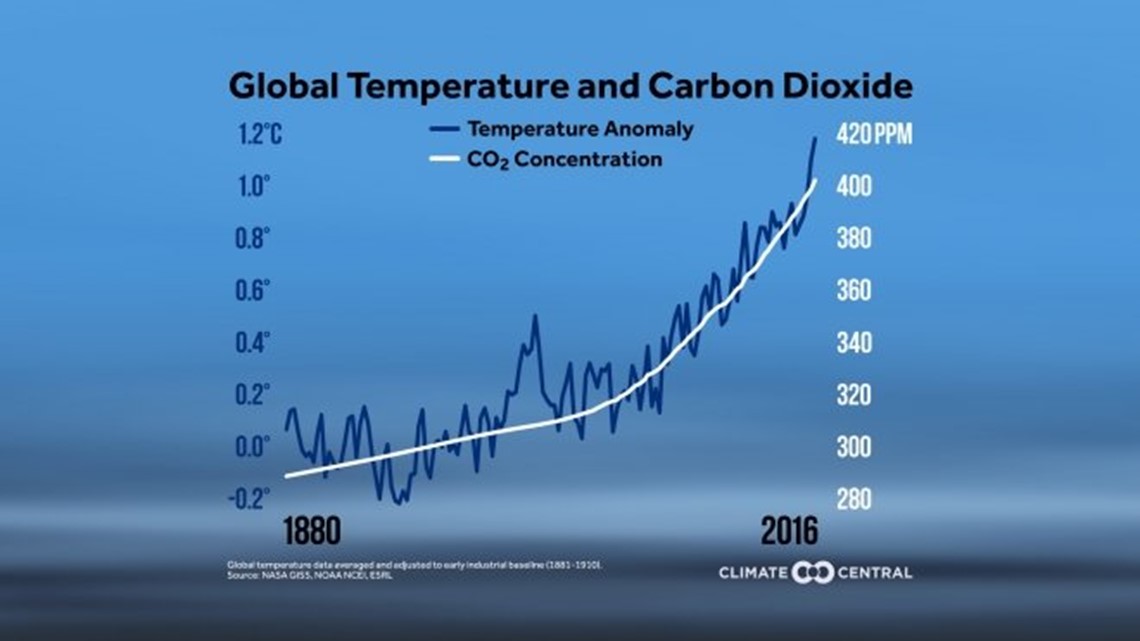
While the Earth has warmed and cooled for millions of years, a remarkable warming has taken place in just our lifetimes. Climatologists point to fossil fuels and carbon dioxide as the leading contributors. Human activity, gone unchecked, will cause accelerated warming which will threaten more flash floods, droughts, hurricanes, and sea level rise.
Dr. William Gutowski, a professor of atmospheric science at Iowa State University has studied the changing climate for 25 years. He holds degrees in astronomy and physics from Yale University and a PhD in meteorology from the Massachusetts Institute of Technology.
When asked why there's still controversy surrounding climate change, he said it shouldn't be that complicated.
"It's college and high school physics," Gutowski said. "We're not talking about complex rocket science here. It comes down to the fundamental law of conservation of energy. Because of the energy of greenhouse gases in the atmosphere, we're trapping more energy as heat. If you put more heat into the earth system, it's inevitable temperatures will rise."

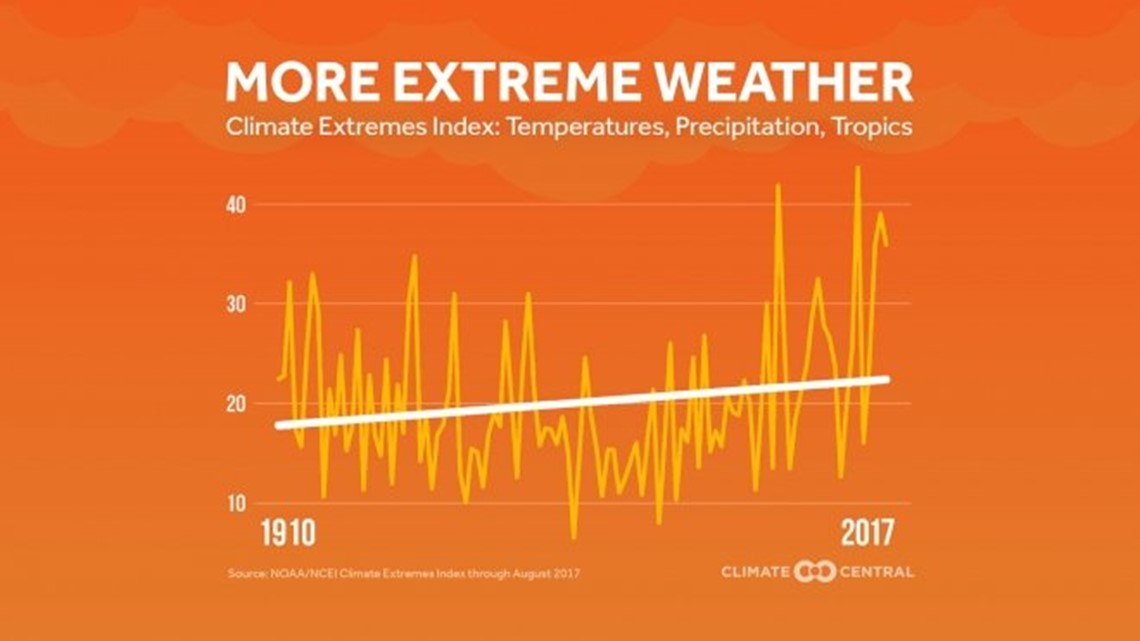
As temperatures around the globe rise, more extreme weather events occur. In our region, the effects are already being seen in the form of more frequent river flood events. And we're not seeing the ordinary floods from snowmelt. Six of the top ten floods of the Mississippi River in the Quad Cities have occurred since 1993. Near-record floods have occurred in 1997, 2001, 2008, 2011, and 2014.

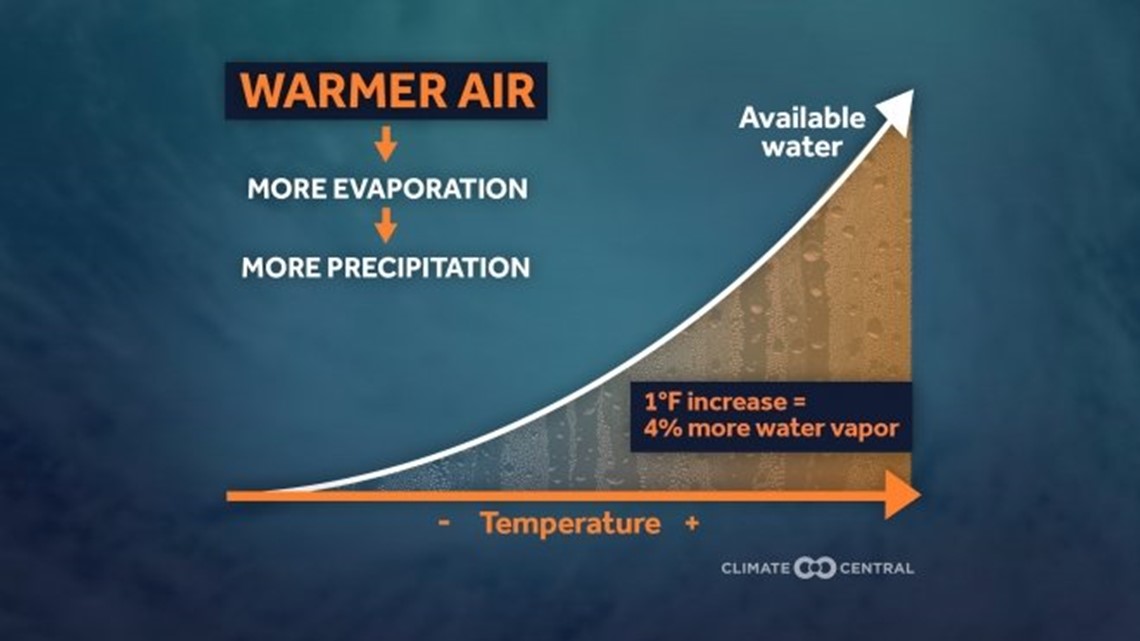
While we can't say that one particular flood is a direct result of global warming, the pattern of these big floods fits into the climate change norm.
In a month-long poll on wqad.com, we asked if people believed global warming was happening. 79% were convinced but 21% of those who responded said they weren’t sure.
When asked which of the following is true:
- 45% of those who responded said there is a combination of human and natural influences going on.
- 37% say that the warming is caused mainly by human activities.
- 10% believe our warming environment is a natural occurrence.
- 8% believe there’s just no such thing as global warming.

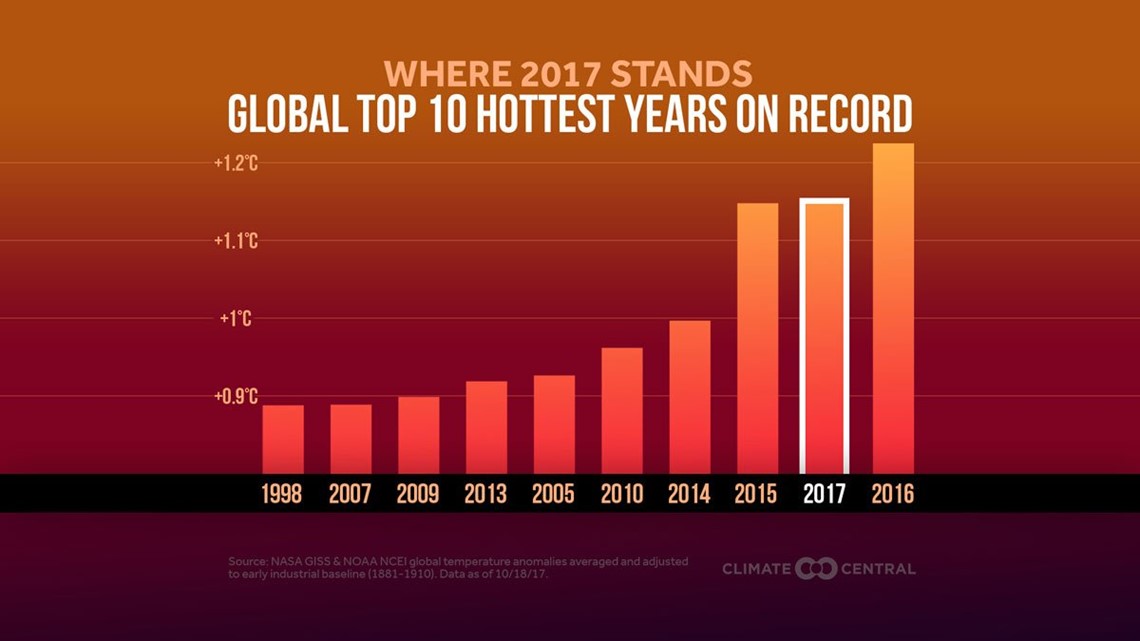
If science has concluded that the atmosphere is warming and we are causing it, why are almost 1 in 5 people in disagreement?
To understand this, we traveled to Bradley University in Peoria, Illinois to talk with Dr. Wendy Schweigert. She’s an associate professor of psychology who knows a lot about how people make decisions.
"We don't generally know a lot about many different things. We know a little bit about a lot of things.," she noted. "As you trust me to give you information about decision making, I trust you to give me the information on weather and climate. But do I know a lot about this subject? No. I have to look to others like you."
Where the information comes from plays a role in whether we believe it to be true. Schweigert says that we place the most value on the opinions of those around us.
"If we know where we’re weak, we have a chance to think it through," she said. "We all have the ability to think it through critically, and logically and rationally. We just don’t always take the time and the energy to do it."
And when it comes down to it, once we've made a decision Schweigert says, "It's hard work to change your mind."
For most, the story would've stopped there. But we decided to form a focus group to understand where Quad Citians stand. We gathered ten people from all different perspectives and backgrounds and met at Western Illinois University-Quad Cities to talk about it.
What we found was that while there were different opinions and conclusions, a common thread developed: all were eager to listen to what the others had to say and welcomed different opinions. For most, they could see how climate change was already having an effect on us. Some offered encouragement for the media to begin studying the economic impact of the climate change already occurring.

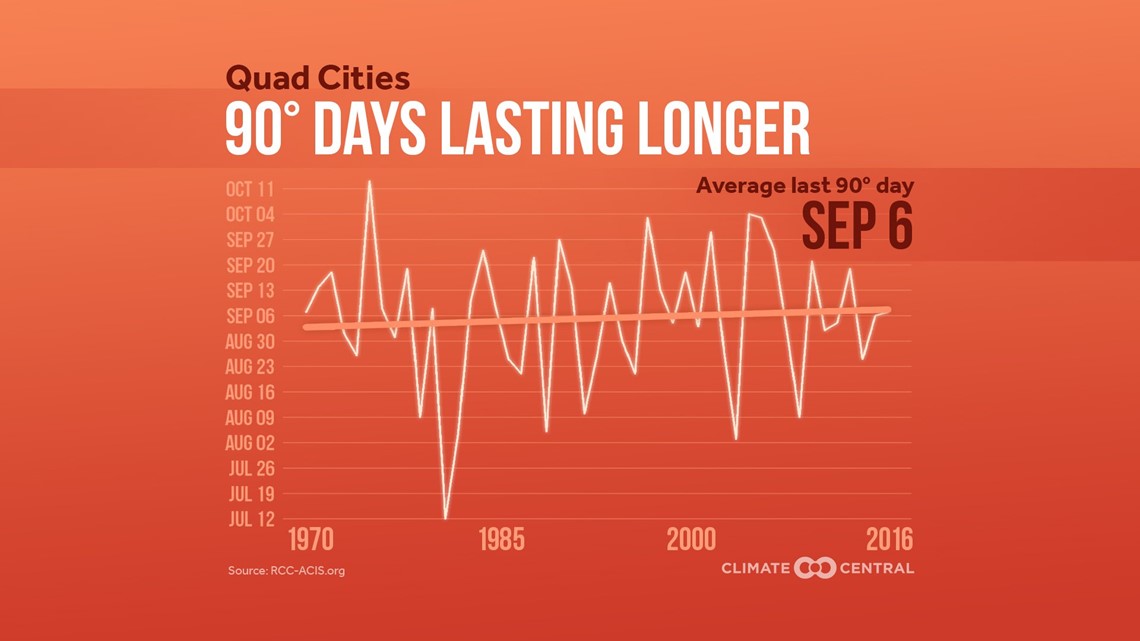
When asked if the conversation about climate change would continue after the forum was over, ten hands went up unanimously.

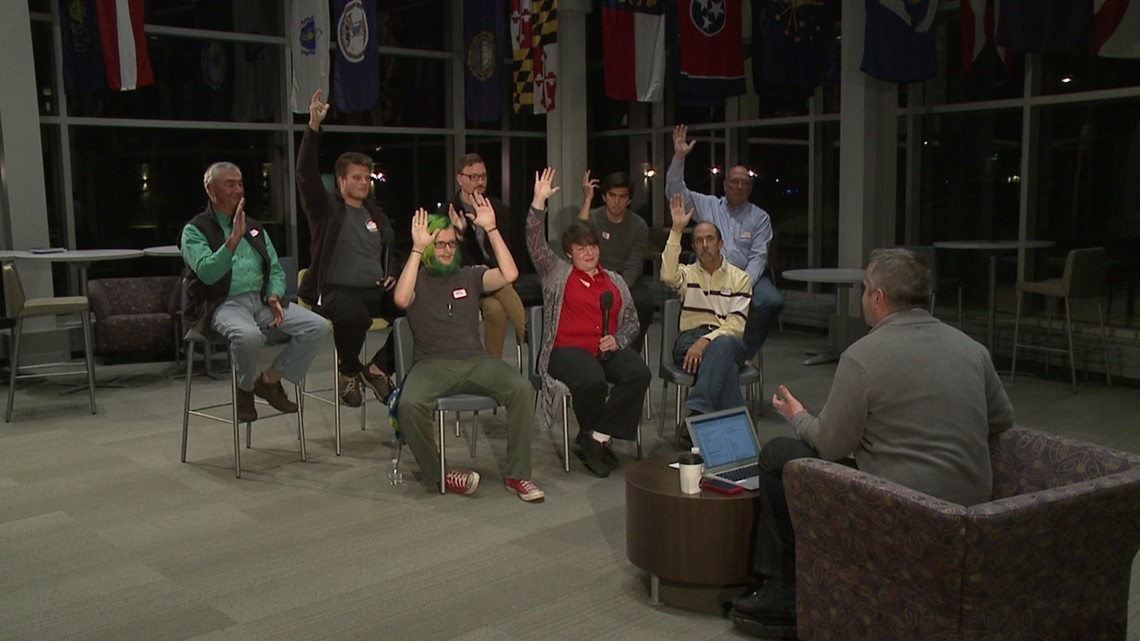
At Iowa State, Dr. Gutowski has something to think about to those who do not believe in the science.
"What do you want to leave for your children? They are the ones who really have to deal with a lot of the consequences if we don't do anything," he said. "They are the ones who are going to inherit the climate, however it changes."
Understanding the world around us is certainly not an easy thing to do.



